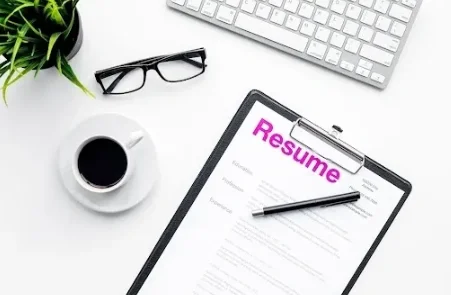Blog
Mastering Behavioral Interview Questions: Tips and Examples
Navigating the landscape of job interviews can be daunting, especially when it comes to behavioral interview questions. These questions are designed not just to probe your professional background but also to gauge how you handle various situations in the workplace. Excelling in these questions can significantly boost your chances of landing your dream job. In this comprehensive guide, we will delve into strategies and provide examples to master behavioral interview questions, making your next job interview a resounding success.
Understanding Behavioral Interview Questions

Behavioral interview questions focus on how you’ve handled various work situations in the past. The premise is that past behavior is the best predictor of future performance. These questions often start with phrases like “Tell me about a time when…” or “Give me an example of…”. They can cover a range of topics, including teamwork, problem-solving, leadership, conflict resolution, and time management.
Why Employers Ask Behavioral Questions
Employers favor these questions because they offer tangible evidence of your skills and compatibility with the company culture. They’re looking for examples that demonstrate your abilities in critical thinking, teamwork, leadership, and adaptability.
Preparing for Behavioral Interview Questions
Preparation is key to confidently answering behavioral questions. Here are some strategies to consider:
Reflect on Your Experiences: Before the interview, think about your past job roles, projects, challenges, successes, and failures. Identify stories that showcase your skills, adaptability, and growth.
Use the STAR Method: Structure your responses using the Situation, Task, Action, and Result (STAR) method to provide clear and concise answers. This method helps you organize your thoughts and ensures you cover all aspects of your example.
Practice: Rehearse your answers to common behavioral questions. This doesn’t mean memorizing answers but being comfortable with your stories and able to adapt them to different questions.
Tips for Answering Behavioral Questions
Be Specific: Provide specific examples from your past experience. Vague answers can make it difficult for the interviewer to gauge your suitability for the role.
Stay Positive: Focus on positive outcomes and learning experiences, even when discussing challenges or failures.
Highlight Your Role: Make sure your answers illustrate your contribution and the impact of your actions on the outcome.
Keep It Professional: While personal stories can sometimes be relevant, prioritize professional experiences that relate directly to the job role.
Examples of Behavioral Interview Questions and Answers
Let’s walk through some examples of behavioral interview questions and answers, utilizing the tips and strategies mentioned above.
1. Describe a time when you worked well under pressure.
Situation: “In my previous role as a project manager, we were nearing the launch of a major product when we encountered unexpected technical issues.”
Task: “My task was to resolve the issues without delaying the launch.”
Action: “I organized a round-the-clock task force to address the technical problems, delegating tasks according to each team member’s expertise.”
Result: “Thanks to our efforts, we resolved the issues within 48 hours, ensuring the product launch went ahead as scheduled. This experience taught me the importance of calm leadership and effective team coordination under pressure.”
2. Give me an example of a goal you reached and tell me how you achieved it.
Situation: “At my last job, I aimed to increase our department’s efficiency.”
Task: “I proposed the implementation of a new project management tool.”
Action: “After getting approval, I led the tool’s integration and trained my team on how to use it effectively.”
Result: “Within three months, we saw a 30% improvement in project completion time, significantly boosting our department’s productivity.”
Practice Makes Perfect
Remember, the more you practice answering these types of questions, the more confident you’ll become. Utilize resources like Nimohr’s resume writing service to further polish your interview skills and contact us for personalized interview coaching.
Conclusion
Mastering behavioral interview questions is a skill that improves with reflection, preparation, and consistent practice. Understanding the purpose behind these questions and responding with structured, thoughtful examples can significantly enhance your presentation in interviews. Each question presents a unique opportunity to highlight your strengths and how they can be applied to potential challenges within the role you’re applying for.
To further refine your interview skills, especially in answering behavioral questions, accessing resources tailored to interview preparation can be incredibly beneficial. We recommend visiting our Interview Preparation page for comprehensive guidance and support designed to help you succeed in your job interviews. For more personalized assistance, feel free to contact us. With the right preparation, you can turn every interview into a stepping stone towards your career goals.
Latest Posts
- How to Update Your Resume for 2025: Expert Tips from NimoHR
- Expert Resume Formatting Tips to Beat Applicant Tracking Systems (ATS)
- Industry-Specific CV Writing: Why One-Size-Fits-All Doesn’t Work
- How a Professionally Written CV Can Speed Up Your Job Search
- Why LinkedIn Profile Optimization is the Secret to Standing Out in a Competitive Job Market
- How a LinkedIn Profile Writer Can Transform Your Online Presence
- Enhancing Your Job Application: The Value of a Cover Letter Review Service
- Common Mistakes in Cover Letters and How Professional Services Can Help
- Overcoming Common Interview Challenges: Gaps in Employment and Career Transitions
- The Role of Non-Verbal Communication in Job Interviews
- Mastering the Salary Conversation: Essential Strategies for Effective Negotiation
- Choosing Between Quitting and Getting Fired: What’s Best for Your Career?
- Mastering LinkedIn Skills: How to Choose the Best Skills for Career Growth
- 5 Proven Strategies to Send LinkedIn Invitations That Get Accepted
- Crafting the Perfect Cover Letter for an Internal Position: A Step-by-Step Guide
- Did You Know? Your Resume Reference Page Could Make or Break Your Job Application
- Crafting a Layoff Notice: Effective Communication During Work Shortages
- In-Demand Skills for 2024: What to Include on Your Resume
- Navigating Career Transitions: Reshaping Your Resume for a New Path
- How to Optimize Your LinkedIn Profile
- Cracking the Job Interview: Insights from NimoHR’s Interview Preparation Sessions
- Using LinkedIn Articles to Showcase Your Expertise
- Creating a Standout Resume for Phoenix Employers: Tips on crafting a resume tailored to the preferences of local Phoenix employers
- Resume Trends for 2024: What You Need to Know
- From First Impression to Final Question: Excelling at the Four Key Interview Evaluation Points
- Behind the Screens: Understanding the Role of ATS in the Hiring Process
- How to Create the Perfect Executive LinkedIn Profile?
- How to Write a Cover Letter That Gets You the Job You Want
- How To Build A Resume
- Get Professionally Written Resumes And LinkedIn Profiles
- Top 5 Reasons To Avail Of LinkedIn Resume Writing Services
- Helpful Tips For Writing A Perfect Cover Letter
- How to Ace Your Next Interview
- 15 Things To Leave Off Your Resume
- Applying Strategically and Networking
- Effective Interview Strategies
- The Best Job-Board Sites
- 4 Simple Signs That You Should Quit Your Job
- The most common interview questions & the best way to answer them
- How to beat those pesky Applicant Tracking Systems
- Jump-start your career during the COVID-19 crisis
- Questions to ask in an interview
- Career consulting ROI. Why you should purchase a professional resume writing services
- The Importance of a Company Culture and HR’s Role
- Why companies should offer outplacement services and career coaching
- Interview Tips: Back to the Basics
Categories
Related Posts

How to Update Your Resume for 2025: Expert Tips from NimoHR
Updating your resume for 2025 requires more than just listing your latest job. With applicant tracking systems (ATS) becoming more sophisticated, you need to format and write your resume strategically to stand out. At NimoHR, we specialize in helping professionals craft impactful resumes that pass ATS filters and impress hiring managers. If you’re ready to… Continue reading How to Update Your Resume for 2025: Expert Tips from NimoHR
Read More
Expert Resume Formatting Tips to Beat Applicant Tracking Systems (ATS)
In today’s competitive job market, a well-crafted resume is essential—but even more important is ensuring it passes the Applicant Tracking System (ATS). ATS software is designed to filter out resumes that don’t meet specific criteria, including formatting, keywords, and structure. Many highly qualified candidates miss out on interviews because their resumes fail to pass the… Continue reading Expert Resume Formatting Tips to Beat Applicant Tracking Systems (ATS)
Read More
Industry-Specific CV Writing: Why One-Size-Fits-All Doesn’t Work
In today’s highly competitive job market, standing out is more important than ever. Many job seekers make the mistake of using a generic CV for all applications, believing that a broad approach will maximize their chances. However, recruiters and hiring managers are looking for candidates who demonstrate a clear understanding of the industry, its requirements,… Continue reading Industry-Specific CV Writing: Why One-Size-Fits-All Doesn’t Work
Read More